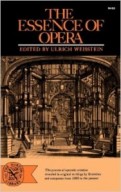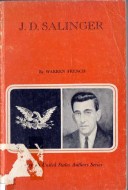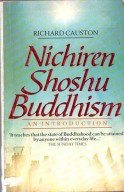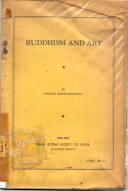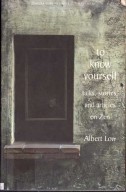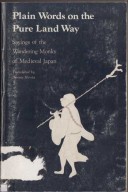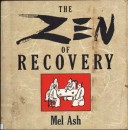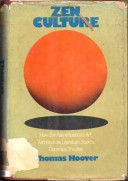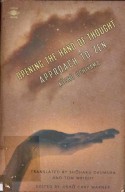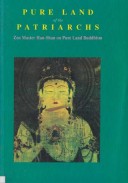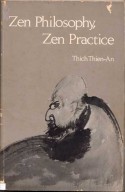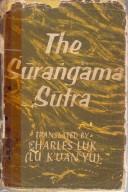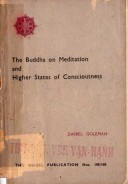Edited and Annotated by ULRICH WEISSTEIN
- W. Norton & Company, Inc. New York
CONTENTS
Foreword by Paul Nettl……………………………. vii
Preface …………………………………………………… ix
Introduction………………………………………………1
Words and Music in Ancient Greek Drama by Douglas Feaver 10
The Camerata……………………………………………………………….. 17
Claudio Monteverdi………………………………………………………. 22
Pierre Corneille…………………………………………………………….. 25
Jean-Bapdste Lully……………………………………………………….. 26
Jean de la Bruyère…………………………………………………………. 29
Charles de Saint-Evremond……………………………………………. 30
John Dryden………………………………………………………………… 35
Joseph Addison……………………………………………………………. 44
Nicolas Boiỉeau-Despréaux…………………………………………….. 51
Benedetto Marcello……………………………………………………….. 54
George Frederic Handel………………………………………………….. 62
Jean-Philippe Rameau……………………………………………………. 64
Francesco Algarotti……………………………………………………….. 68
Voltaire……………………………………………………………………….. 74
Jean-Jacques Rousseau………………………………………………….. 81
Denis Diderot……………………………………………………………….. 90
Pietro Metastasio………………………………………………………….. 99
Christoph Willibald Gluck……………………………………………. 104
Christoph Martin Wieland……………………………………………. 113
Johann Wolfgang von Goethe……………………………………….. 122
Wolfgang Amadeus Mozart………………………………………….. 127
Lorenzo da Ponte………………………………………………………… 135
Beaumarchais……………………………………………………………… 139
André Ernest Grctry……………………………………………………. 152
Ludwig van Beethoven…………………………………………………. 159
Franz Grillparzer…………………………………………………………. 162
- T. A. Hoffmann………………………………………………………. 166
Carl Maria von Weber…………………………………………………. 179
Arthur Schopenhauer…………………………………………………… 182
Gioacchino Rossini……………………………………………………… 187
Stendhal (Henry Beyle)………………………………………………… 191
S0ren Kierkegaard…………………………………………………….. 201
Hector Berlioz…………………………………………………………….. 209
Richard Wagner………………………………………………………….. 214
Georges Bizet……………………………………………………………… 222
Friedrich Nietzsche………………………………………………………. 226
Giuseppe Verdi…………………………………………………………… 238
Arrigo Boito……………………………………………………………….. 243
Modeste Petrovich Mussorgsky…………………………………….. 246
Peter Ilych Tchaikovsky……………………………………………….. 251
Claude Debussy………………………………………………………….. 254
George Bernard Shaw………………………………………………….. 257
Ferruccio Busoni…………………………………………………………. 263
Jean Cocteau………………………………………………………………. 267
Igor Stravinsky…………………………………………………………… 272
Charles Ferdinand Ramuz…………………………………………….. 278
Giacomo Puccini…………………………………………………………. 282
Richard Strauss…………………………………………………………… 293
Hugo von Hofmannsthal………………………………………………. 299
Alban Berg…………………………………………………………………. 313
Paul Claudel……………………………………………………………….. 318
Kurt Weill………………………………………………………………….. 329
Bertolt Brecht…………………………………………………………….. 332
Dimitri Shostakovitch………………………………………………….. 344
Ernst Krenek………………………………………………………………. 348
w H. Auden………………………………………………………………… 353
Contemporary Opera………………………………………………….. .360
Index…………………………………………………………………………. 367
FOREWORD
THE CULTURE HISTORIAN Riehl once called the history of opera a martial history. Indeed, there is hardly a period in operatic history in which idealism and realism are not engaged in heavy warfare. Even the birth of opera around 1600 must be regarded as a protest against the nonrealistic tendencies of fifteenth- and sixteenth-century polyphonic music. The antithesis bellezza/verità prevails in the entire history of the genre and finds its most striking expression in the confrontation of recitative and aria in eighteenth-century opera. Over and again, the realistic principle asserts itself against the sensual one, with the French, as a rationalistically inclined people, insisting on a more natural use of language and the Italians on sensual beauty. As so often in musical history, the Germans occupy an intermediate position, with Gluck taking the part of the French, Mozart that of the Italians, and Wagner creating the first efficient synthesis of realism and idealism. In his correspondence with Goethe, Schiller, the foremost German author of idealistic drama, voices the following views on opera:
I have always maintained a certain confidence in opera and thought that tragedy, in its noblest form, might evolve from it, as it did from the choruses of the ancient Bacchic festivals. Opera is free from any servile Imitation of nature. By the power of music it attunes the soul to a beautiful receptiveness. Here, too, pathos has greater play, because it is accompanied by music, and the wonderful which is tolerated here must, of necessity, cause indifference toward the subject matter.
What a contrast between this ideal conception of opera and those satires and invectives, like Benedetto Marcello’s Teatro alla moda, which ridicule opera as an art form!
No wonder, then, that the fierce struggle for and against French and Italian opera, for and against opera seria, for and against Gluck and Piccinni, for and against opera as drama, was often a literary one and sometimes threatened to erupt in physical violence. This martial history is reflected in a vast body of literature, of which Ulrich Weisstein’s anthology gives a well-rounded picture. The editor displays a thorough knowledge of the sources, and his selections span the entire range of Western cultural history from Euripides to W. H. Auden. We find documents by Rinuccini, the librettist of the first modem opera, as well as Corneille, Addison, Rameau, the French Encyclopedists, Metastasio, and such writers of the present century as Hofmannsthal, Claudel, and Brecht. We look over Mozart’s shoulder as he discusses with his father the relationship of music and words in his Abduction. We witness how Beethoven is induced to make changes in Fidelio and how Nietzsche reverses his attitude toward Wagner.
This anthology meets all the conditions a documentary work on opera ought to meet. As professor of comparative literature, Weisstein was drawn to the libretto as an art form and dealt with it, perhaps for the first time, from the point of view of literary criticism [“The Libretto as Literature,” Books Abroad, XXXV (1961), 16-22]. That he is not unaware of the practical aspects of the problem is shown by his translation of the libretto to Schubert’s Singspiel Die Zwillingsbruder.
The editor is overly modest when declaring that an anthology like the present one will serve as a source book for students as well as opera fans. It is the first compilation of its kind; one can reasonably expect that for-many years to come it will be indispensable to cultural historians.
Paul Nettl
PREFACE
THE THOUGHT OF COMPILING AND EDITING an anthology of writings on opera occurred to me while I was preparing my dissertation on the musico-dramatic structure of Otello and Der Rosenkavalier. After approximately ten years of intermittent labor I am reasonably satisfied that I have gathered material sufficiently broad in scope and representative in nature to constitute a historical introduction to what with Beaumarchais I should like to call the Poetics of opera. In translating many of the items in the collection, several of them for the first time, I have endeavored to go back to the sources rather than relying on, often inaccurate or garbled, earlier English versions.
On numerous tricky questions in French and Italian I have had the expert advice of my colleagues, Professors Joel Hunt and Mark Musa of Indiana University. To the staff of the Interlibrary Loan Department of the university, especially to Mrs. Eleanor Rogers and Mr. Thomas Glastras, I owe a particular debt of gratitude. Without their help, I could hardly have completed my task successfully. Thanks are due also to the editors and editorial advisers of The Free Press, notably Mr. Thomas Simpson, Mrs. Barbara Brown, and Mr. Frederick Freedman, who have assisted me in the final stages of preparation; to Mr. Hilton Kramer, who showed an active interest in the project; and to Dr. Paul Nett], whose presence in Bloomington was reassuring. Mr. Douglas Feaver’s offer to write the essay on “Words and Music in Ancient Drama” was extremely welcome. The Graduate School of Indiana University made it possible for me to have the final draft of the manuscript expertly typed. My wife, finally, shared with me most of the joys and sorrows felt in the long period of gestation.
Bloomington, Indiana U. W.
 Facebook
Facebook
 Google
Google
 Google+
Google+
